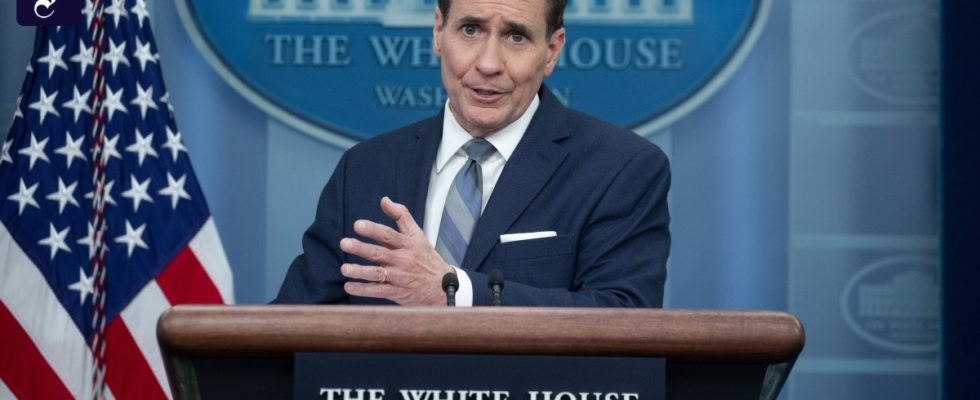WThe meek demeanor of American officials shows just how upset the release of intelligence information about the war in Ukraine, among other things, is in Washington. “We don’t know who is behind it. We don’t know the motive. And we don’t know if more has leaked out,” said John Kirby, spokesman for the National Security Council. He added, “We take this very, very seriously.”
What is certain: the damage is considerable. Both for Kiev, which is preparing its spring offensive against the Russian aggressor, and for Washington, which faces questions from allies about securing intelligence and the fact that Washington continues to bug allies.
A spokesman for the State Department also confirmed that high-level government officials are currently in the process of explaining to allies that they feel obliged to secure classified information. Memories of the Wikileaks and NSA affairs are awakened. The services had recently been able to make these scandals a little forgotten and polish their image. Information about the Russian attack plans, which Washington had made public in the weeks before the war broke out, had made a significant contribution to convincing initially skeptical allies of Vladimir Putin’s imperialist intentions.
No information about concrete plans
For weeks, classified information has been circulating on the Internet, initially on pro-Russian channels, and it mainly comes from the Pentagon. American government officials do not deny that these are authentic documents, even if some of them are said to have been subsequently manipulated. The Department of Defense is spearheading an interagency investigation to determine what impact the leak could have on national security, Kirby said. Criminal investigations have also been launched in the Ministry of Justice.
It is not yet clear where the trail is leading, especially since the information not only reveals military weaknesses of both Ukraine and Russia, but also affects several other states. The material was apparently photographed and then uploaded to the internet. Little effort is said to have been put into obfuscating IP addresses and date stamps. All this speaks for a leak and against a hacker attack.
It cannot be ruled out that the trail does not lead to a foreign secret service, but to an internal leak, i.e. an employee who is critical of American foreign and security policy. The government says hundreds have access to classified information.
As for Ukraine, the documents are said not to contain any information about concrete battle plans. But they reveal the critical condition of the Ukrainian armed forces, such as the urgency for the West to massively strengthen Ukraine’s air defenses. The documents also reflect how deeply American services have penetrated the Russian security apparatus. The Americans can apparently warn Kiev of impending attacks in real time. This, of course, will increase Moscow’s efforts to better protect itself against American espionage.
The information about the Russian war of aggression also affects other states: The Washington Post reports that a document from February this year shows that Egyptian President Abdel Fattah al-Sisi, a Washington ally in the Middle East, has ordered 40,000 manufacture missiles to secretly deliver them to Russia.
The classified information is also said to reveal how Washington is pressuring Seoul to supply ammunition to Ukraine, breaking with its policy of not supplying weapons to war zones. After all, not everything is related to Russia: The documents are also intended to suggest that the Pentagon assumes that the Mossad, the Israeli foreign intelligence service, has encouraged its own employees to take part in the protests against Benjamin Netanyahu’s government.
